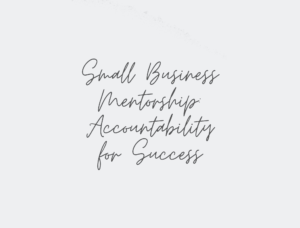Introduction
Mastering career growth goes beyond corporate ladder climbing in terms of personal and professional fulfillment. It requires skill development, networking, and job market savvy. Active career advancement boosts job happiness, earnings, and prospects.
This ultimate career guide covers self-assessment, skill development, networking, relevant experience, personal branding, job search techniques, and work-life balance. It will help you master career advancement, whether you’re starting out or making a big transition.
What is Career Growth?
Career success today involves more than just promotions. Continuous learning, skill improvement, and personal branding provide significant job advancement. One can grow by taking on more responsibilities, learning new skills, or switching careers to match their passions and strengths.
Benefits of Career Growth
Many benefits to career growth make both personal and business life better:
- Personal Satisfaction: Career progress boosts self-esteem. When you pursue growth, you feel confident and driven.
- Financial Rewards: Career growth generally boosts earnings. You gain value from your employer as you learn new skills and take on more responsibility, which can lead to wage raises and bonuses.
- Increased Opportunities: Career advancement offers intriguing new prospects. Managing your professional growth prepares you for new jobs, leadership roles, and high-profile projects.
Common Misconceptions
A lot of people have the wrong ideas about job growth, which can slow them down:
- It’s Only About Promotions: Many think career success is about corporate advancement. However, lateral shifts, new talents, and various experiences are equally crucial.
- It Happens Naturally: Another fallacy is that career advancement happens naturally. It takes deliberate work, continual learning, and strategic planning.
- It’s Only for the Ambitious: Some think career progression is only for organizational leaders. Whatever your employment goals, career progress boosts job happiness and personal fulfillment.
Understanding these professional growth factors helps build a successful and rewarding career.
Self-Assessment and Goal Setting
Understanding your job and goals starts with self-assessment. Several tools and strategies can aid this process:
- SWOT Analysis: This tool helps you assess your SWOT. Understanding these factors enables you to choose a career.
- Personality Tests: The MBTI and Big Five personality traits tests can reveal your personality, interests, and work style. This knowledge is essential for finding a career that suits you.
Identifying Strengths and Weaknesses
To move up in your job, you need to know your strengths and weaknesses. Here are some things that will help you with this:
Seek Feedback: Get honest comments about your work from coworkers, mentors, and bosses. This can help you see clearly what you’re doing well and what you need to work on.
Reflect on Past Experiences: Look at your work and jobs. What did you do well? Where did you have trouble? This can help you see your skills and weaknesses.
Use Self-Assessment Tools: Tools like SWOT analysis can help you carefully determine your strengths and weaknesses.
Utilize your abilities by taking on related tasks. Train, mentor, or get experience to improve your deficiencies.
Setting SMART Goals
For job growth, it’s important to set goals, and the SMART criteria can help you make sure your goals are clear and attainable:
- Specific: It would be best if you were clear about your goals. “I want to learn advanced Excel techniques” is a better phrase than “I want to improve my skills.”
- Measurable: You ought to be able to track your successes. For example, “I will complete an Excel course and practice for two hours each week.”
- Achievable: Set reasonable and doable goals. If you are a junior analyst now, your goal should be to become a senior analyst before you pursue a management job.
- Relevant: Your ambitions should match your career goals. Develop essential abilities and project management experience to enter project management.
- Time-bound: Give yourself a due date for your goals, such as “I will complete the Excel course within three months.”
If you follow these steps and use these tools, you can thoroughly evaluate yourself and set useful goals that will help your job progress.
Developing Essential Skills
Hard Skills vs. Soft Skills
For job growth, it’s important to know the difference between hard skills and soft skills:
- Hard Skills: Certain teachable skills or information can be quantified. Examples include foreign language, programming, data analysis, and technical writing. Learning these abilities through school, training, or work is common.
- Soft Skills: Interpersonal and personality factors impact how well you interact with others. Teamwork, problem-solving, communication, and time management are examples. Soft talents, which are difficult to define, are just as vital at work.
In-Demand Skills for 2024
You can stay competitive in the job market by learning new skills that employers want. Important skills for 2024 are:
- Digital Literacy: As technology improves, people in all fields need to be able to use digital tools and sites effectively.
- Data Analysis: Analyzing and making sense of data is becoming increasingly useful because it helps businesses make smart decisions.
- Artificial Intelligence (AI) and Machine Learning: People who know about these things are in high demand, especially for tech-related jobs.
- Project Management: To get things done on time and price, you must know how to manage projects well.
- Cybersecurity: As cyber dangers rise, people who know how to keep information systems safe are in high demand.
- Emotional Intelligence: Leaders and team workers must be able to understand and control their own emotions and those of others.
By working on your hard and soft skills and learning new skills that are in demand, you can keep your job growth on track and in line with industry trends.
Building a Professional Network
Networking is essential for career advancement. It requires maintaining professional contacts for support, information, and opportunities. Effective networking can lead to employment referrals, mentorship, and project collaboration. It also keeps you abreast of industry changes.
Effective Networking Strategies
For job growth, networking is important both online and off. For each, here are some tips:
Online Networking
- Join Professional Groups: Join online discussions or LinkedIn groups related to your business.
- Engage with Content: Share and comment on posts, articles, and updates that are important to you. This helps more people see you and trust you.
- Reach Out: Don’t be afraid to get in touch with people who work in your field. Send personalized texts introducing yourself and saying why you’d like to get in touch.
Offline Networking
- Attend Industry Events: You can meet people who work in your field at conferences, seminars, and training.
- Join Professional Organizations: Joining organizations focusing on your business can help you make connections and find resources.
- Follow-up: Send a follow-up email or message to someone you met to keep the bond going.
Leveraging Social Media
A lot of business networking happens on social media sites, especially LinkedIn. Here are some tips on how to use these sites most effectively:
- Complete Your Profile: Make sure your LinkedIn page has a professional photo, most recent job experiences, and a list of your skills.
- Share Insights: Post articles, thoughts, and accomplishments regularly to keep your network interested.
- Join Discussions: Take part in discussions about important topics to get more attention and show that you know what you’re talking about.
- Connect Strategically: Build a network of industry leaders, mentors, and coworkers to advance your career.
Gaining Relevant Experience
Getting relevant experience is important for moving up in your job. Here’s how to look for chances:
- Internships: Find jobs you want to work in to build your resume and get real-world experience.
- Volunteer Opportunities: Volunteering for projects or groups related to your job can help you learn new skills and meet new people.
- Freelance Projects: You can improve your skills and build your resume by taking on freelance work.
Maximizing Current Role
There are ways to get more knowledge at the job you already have:
- Take on New Responsibilities: Offer to help with new projects or jobs that aren’t part of your normal job.
- Seek Feedback: Ask for opinions regularly to find ways to grow and improve.
- Continuous Learning: To improve your skills, attend workshops, webinars, or courses offered by your company.
Mentorship
Mentors are very important for job growth because they offer advice, support, and useful information. This is how you can find a mentor:
- Identify Potential Mentors: Look for people in your group or network with the skills and knowledge you value.
- Build a Relationship: Start by talking professionally to them, like asking for help or feedback on certain problems.
- Formalize the Mentorship: Once you’ve gotten to know them, ask if they’d be willing to guide you. Make clear what you want to achieve and how you think it will help.
You can improve your job growth prospects and reach your professional goals by building a strong professional network and getting relevant experience.
Personal Branding
Building a strong personal brand is important for career growth. To make one, follow these steps:
- Define Your Brand: Determine what makes you different from other people in your area and your strengths and values. Think about your interests, skills, and experiences.
- Develop a Personal Brand Statement: Write a brief message about yourself, your work, and your uniqueness. This should concisely describe your professional identity.
- Consistent Messaging: Ensure your online and offline professional communications mirror your brand. Consistency builds trust and recognition.
- Visual Identity: Create a visual identity with professional pictures, a logo (if needed), and a unified internet design. This builds brand recognition.
Online Presence
In this digital age, having a professional web presence is important. Here are some tips on how to handle it well:
- LinkedIn Profile: Update your LinkedIn profile with your current skills, experiences, and accomplishments. Use a quality photo and an engaging headline that represents you.
- Personal Website: A website or blog can promote your work, share ideas, and explain your career experience. This can centralize your online presence.
- Social Media Activity: Engage on Twitter, Instagram, and industry forums. To gain visibility, share valuable stuff, communicate with people, and participate in discussions.
- Online Reputation Management: Regularly check your web presence to maintain accurate and favorable brand representation. Google yourself occasionally to see what appears.
Building a Portfolio
A professional portfolio is essential for showing your work and accomplishments. Here’s how:
- Select Your Best Work: Select samples of your work that demonstrate your talents and achievements. This could be projects, reports, presentations, or other pertinent content.
- Organize Your Portfolio: Organize your portfolio for ease of use—sort comparable material into groups or sections. Provide context with concise descriptions of each component.
- Highlight Results and Impact: Include data or outcomes that show your work’s influence. This shows potential employers or clients your value.
- Keep It Updated: Keep your portfolio current with fresh work and accomplishments. A current portfolio shows growth and development.
- Digital Portfolio: Consider establishing a PDF or online portfolio. It’s easy to show potential employers or clients.
Create a strong personal brand, maintain a professional internet presence, and establish a thorough portfolio to promote yourself and advance your career.
Job Search and Advancement
Effective job search methods and tools can boost your career. Some methods:
- Utilize Job Boards: You can find jobs related to your field on well-known job boards like LinkedIn, Indeed, and Glassdoor.
- Networking: Use your business network to find out about new job opportunities. Referrals and informational conversations can be very helpful.
- Company Websites: People interested in working for a company can find job openings that are not listed anywhere else by going to their career pages.
- Recruitment Agencies: It’s a good idea to work with staffing firms that focus on your business. They can give you access to special job openings and help you with your work.
- Tailored Applications: For each job application, ensure your resume and cover letter are tailored to show your most appropriate skills and experience.
Resume and Cover Letter Tips
For a good first impression, you need to make sure your resume and cover letter stand out:
Resume Tips:
- Clear Layout: Make the layout look clean and professional, with parts that are easy to see.
- Relevant Experience: Pay attention to your most important work experience and accomplishments.
- Keywords: To get through Applicant Tracking Systems (ATS), use keywords specific to the business.
- Quantify Achievements: For example, “Increased sales by 20%” is a number that can be used to show your effect.
Cover Letter Tips
- Personalization: Write the business name and address in the cover letter to the hiring manager.
- Introduction: Start with a strong sentence that makes people want to read more.
- Specific Examples: Give specific examples of how your knowledge and skills match the job’s needs.
- Closing: End with a call to action that shows how excited you are about the job and how much you want to talk more.
Interview Preparation
To do well in different types of interviews, you need to prepare:
- Behavioral Interviews: Case, Task, Action, and Result (STAR) is a way to organize your answers to behavioral questions.
- Technical Interviews: Go over important technical ideas, work on writing problems (if needed), and learn about the company’s tools and technologies.
- Mock Interviews: Conduct practice interviews with a friend or coach to get feedback on your performance and to improve your answers.
- Research: Learn about the company’s history, current events, and other relevant information to show that you’re interested and a good fit.
Negotiating Job Offers
Talking about your salary and other perks can have a big effect on your overall pay:
- Research Salaries: Use sites like Glassdoor and PayScale to find out how many people are in your job and what your experience level usually makes.
- Know Your Worth: Know how valuable you are and what skills you bring.
- Consider the Entire Package: Look at the full-pay deal, which should include benefits, bonuses, and stock options.
- Be Professional: Be polite and efficient when you negotiate. Thank the person for their offer and explain why you need certain changes.
Work-Life Balance
A healthy work-life balance is essential for career progress and well-being. It increases job satisfaction, reduces stress, and prevents burnout. A balanced life also boosts work productivity and engagement.
Time Management Tips
Good time management helps you balance work and life:
- Prioritize Tasks: Sort jobs by how important and quickly they need to be done using tools like the Eisenhower Matrix.
- Set Boundaries: Set clear limits between your work and free time. Do not check work emails when you are not supposed to.
- Use a Planner: Plan your day or week ahead of time using a planner or a digital schedule.
- Delegate: When you can, give chores to other people to free up your time for more important things.
Stress Management
Managing stress is important for keeping your mind healthy and getting things done:
- Exercise Regularly: Being active can help you feel better and less stressed.
- Mindfulness and Meditation: Mental health exercises and meditation can help you stay calm and on task.
- Take Breaks: Taking breaks at work can help you focus and accomplish more.
- Seek Support: If you’re feeling stressed, don’t be afraid to ask for help from family, friends, or a professional.
You may expand your career and find personal fulfillment by mastering job search tactics, writing compelling applications, preparing for interviews, negotiating offers, and maintaining a healthy work-life balance.
Conclusion
Skill development, networking, personal branding, smart job hunting, and work-life balance are needed to grow a career. Implement the ideas in this guide to improve your job, attain your goals, and discover personal contentment. Be proactive, learn, and grow. You control your career.





